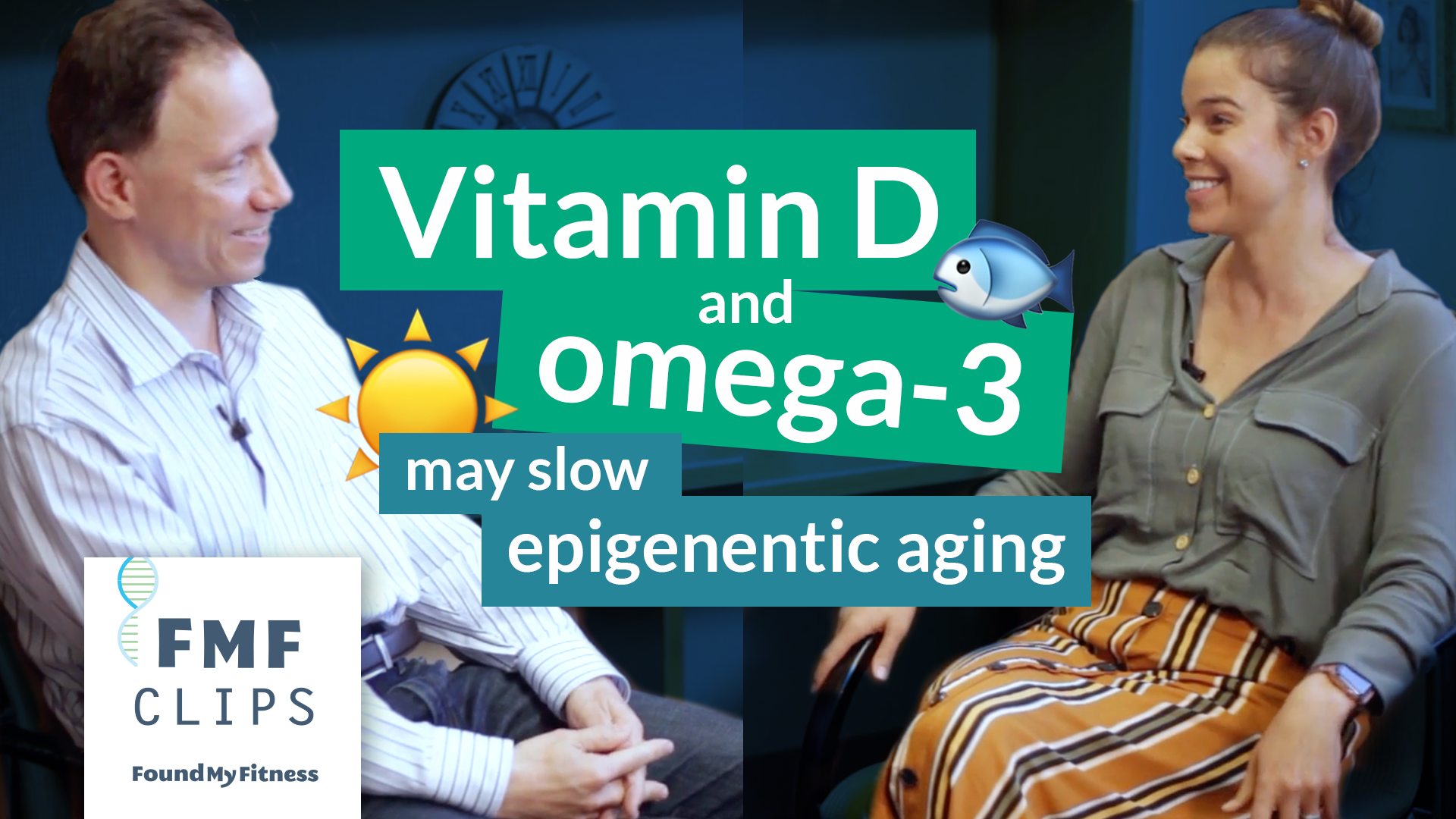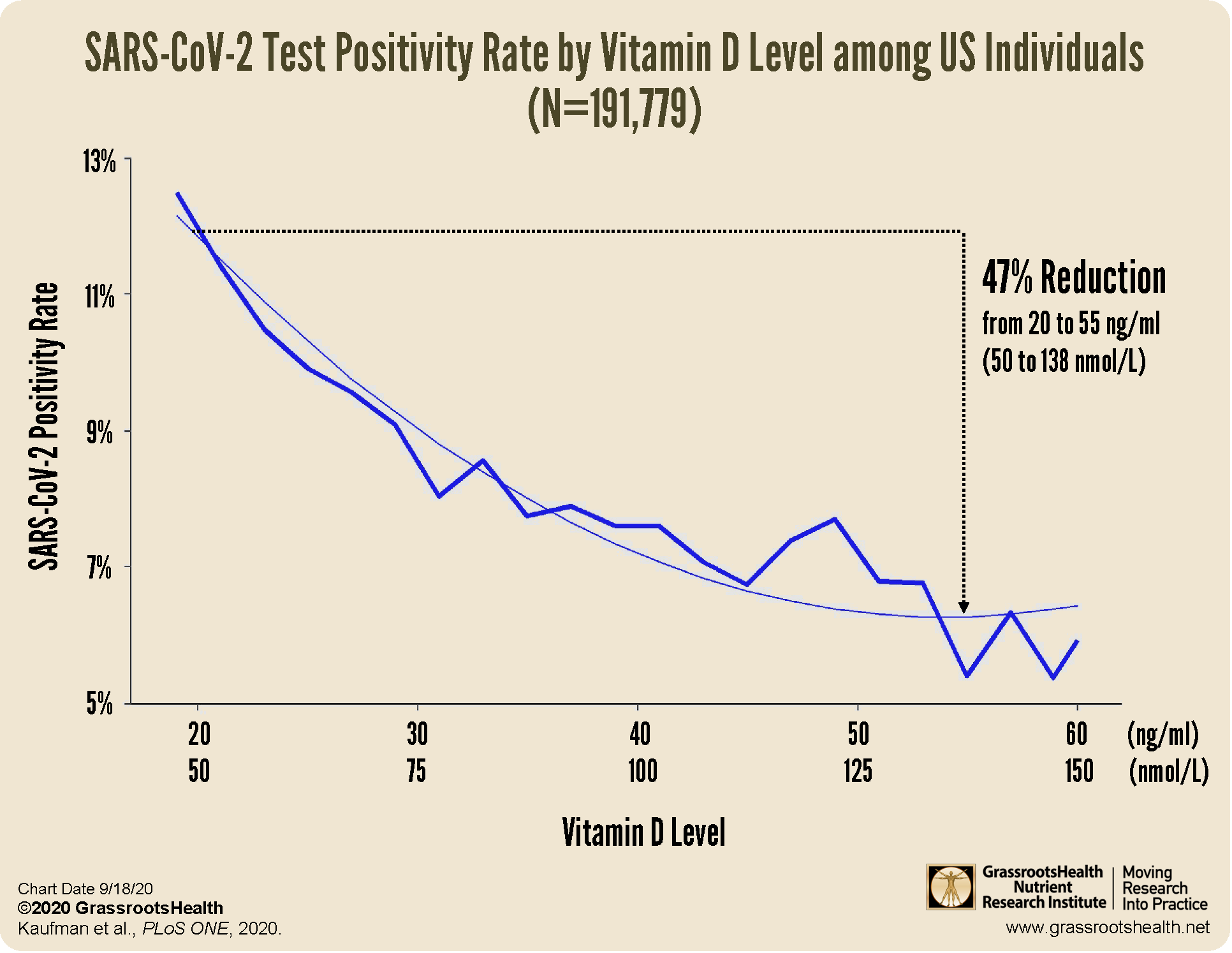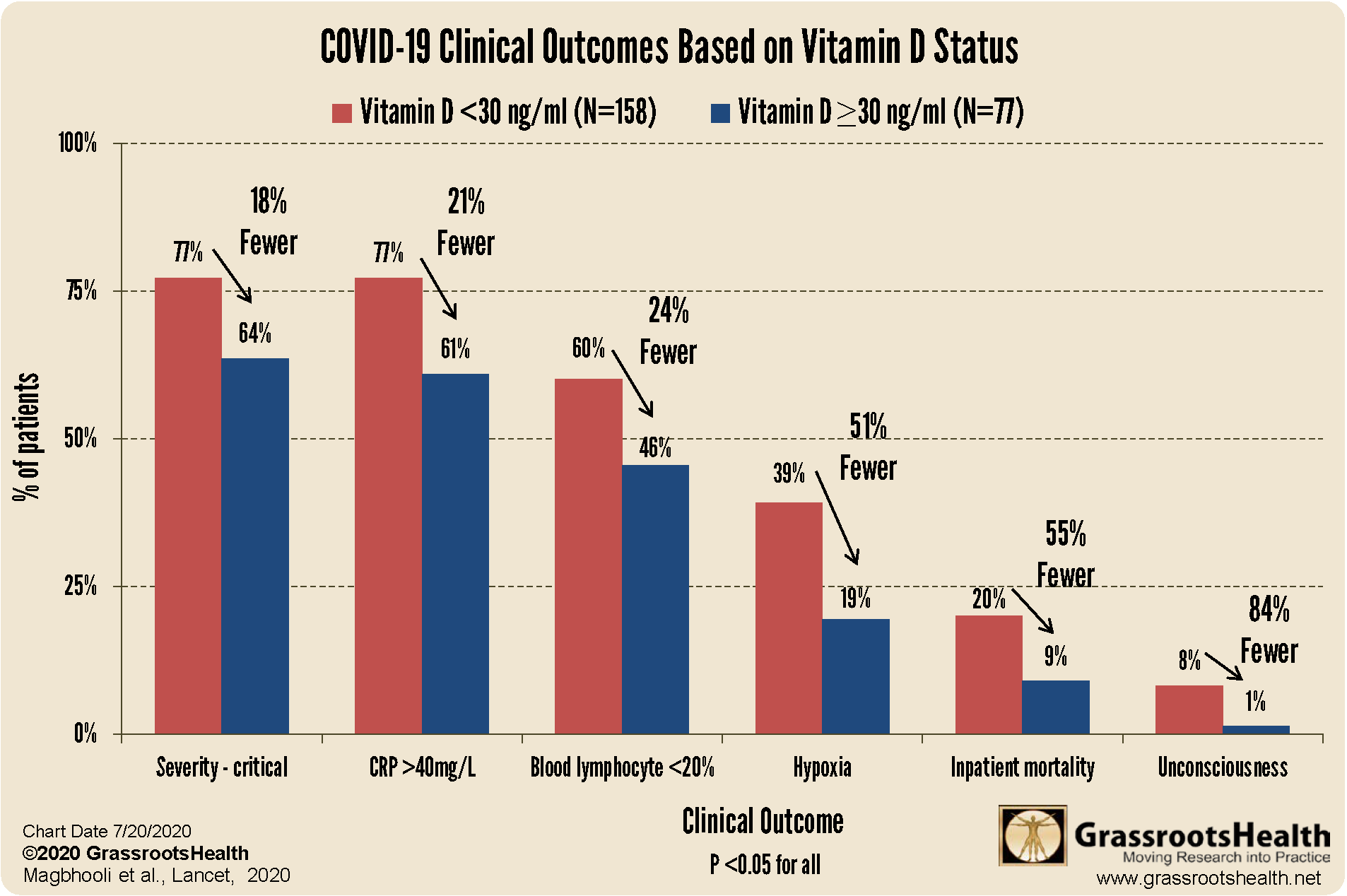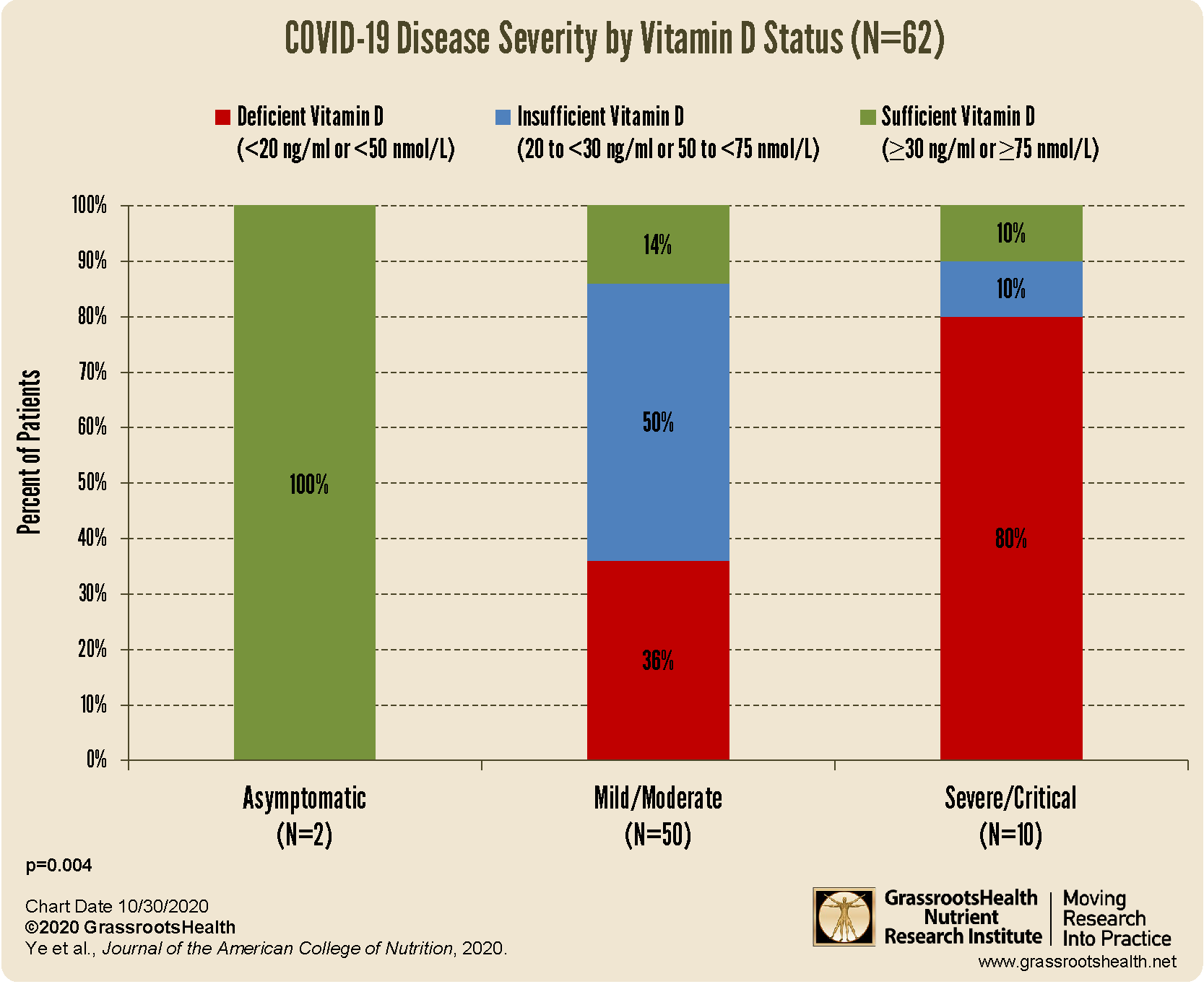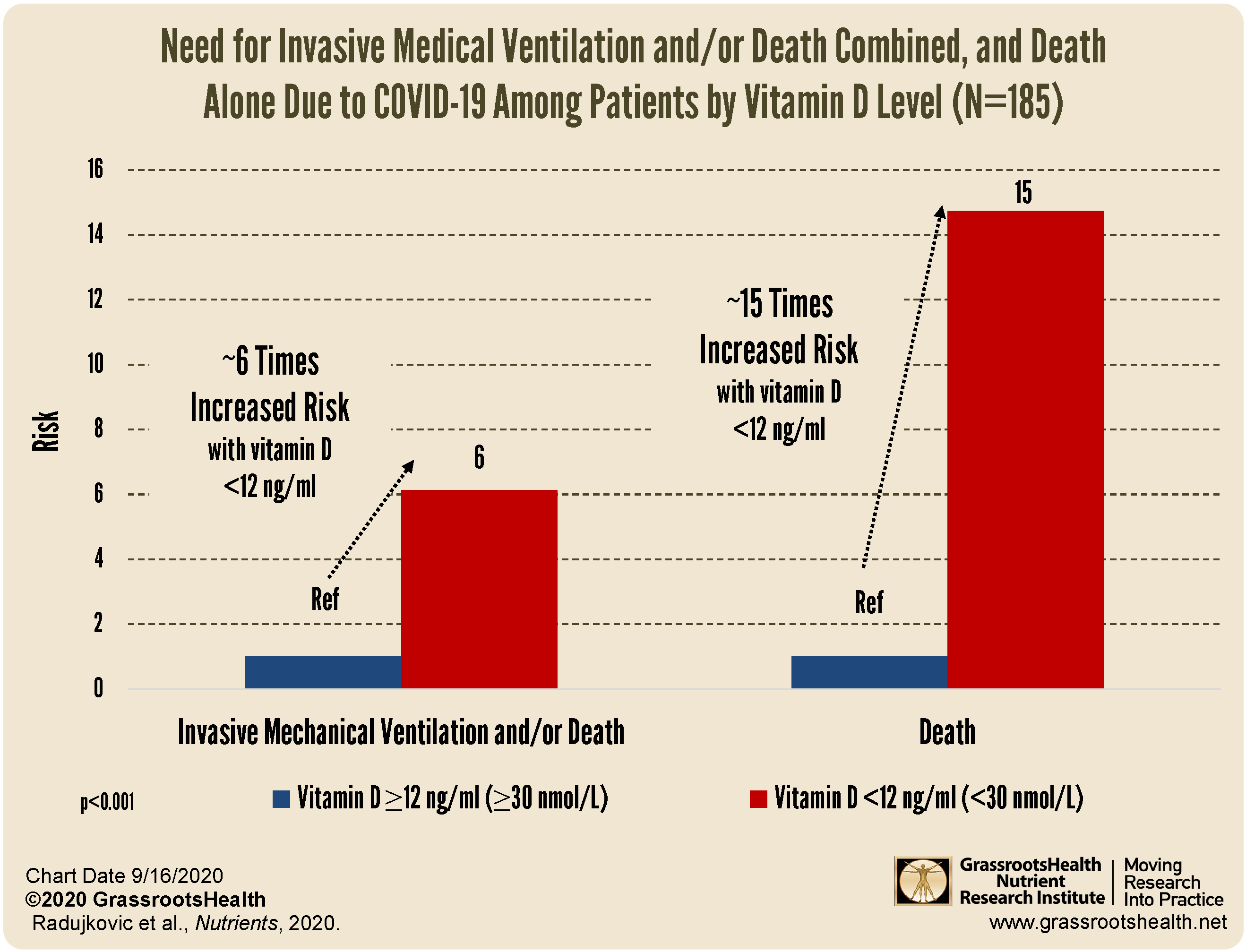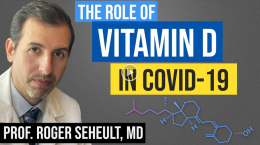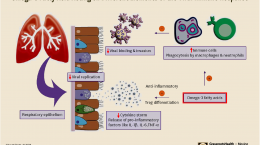Published on January 8, 2021
Video Friday: Studies show that Vitamin D and Omega-3s may slow or reverse epigenetic aging
 Is our age solely determined by the number of years we have lived? While chronological age is calculated the same for everyone (based on how old we are in years), biological age is more representative of overall physiological and functional health, including the risk of age-related conditions and diseases. Epigenetic aging is related to the modification of our genes, specifically through DNA methylation, which may in turn directly affect the biological age of an individual. Research has shown that lifestyle and nutrition factors play a role in epigenetic aging, and that supplementation with specific nutrients may slow or reverse it.
Is our age solely determined by the number of years we have lived? While chronological age is calculated the same for everyone (based on how old we are in years), biological age is more representative of overall physiological and functional health, including the risk of age-related conditions and diseases. Epigenetic aging is related to the modification of our genes, specifically through DNA methylation, which may in turn directly affect the biological age of an individual. Research has shown that lifestyle and nutrition factors play a role in epigenetic aging, and that supplementation with specific nutrients may slow or reverse it.
In the video clip below, Dr. Rhonda Patrick interviews Dr. Steve Horvath about evidence suggesting that supplemental vitamin D or omega-3 fatty acids can slow epigenetic aging and add years to our lives.
How Could Vitamin D and Omega-3s Affect Our Biological Age?
Age-related conditions and diseases, including cancers, heart disease, and cognitive disease, can be majorly affected by our lifestyle and nutrition habits. One clear connection is inflammation, which itself has been shown to be a major contributor to aging (termed inflammaging). Both vitamin D and omega-3s have anti-inflammatory effects within the body.
Also common among inflammatory based diseases is the disruption in the tightness and stability of endothelial and vascular tissues. (Endothelial cells form the inner lining of the heart and blood vessels (veins, arteries, capillaries) and the lymphatic system.) This disruption contributes to dysfunctional nutrient exchange, inflammatory cell migration, and abnormal clotting – worsening our biological age. Addressing this disruption has been shown to lessen the effects from the inflammatory diseases involved. Both omega-3s and vitamin D have direct effects on the health of these cells.
Lastly, vitamin D plays a key role in the expression of our genes, and therefore, in the many complex cellular pathways involved throughout the body, in all systems of health.
Watch the Video
After watching the video, be sure to make note of our added details below!
Here is a quick summary of what this video discusses with some of our added details:
- A small randomized controlled trial (RCT) by Chen et al. found that vitamin D supplementation of both 2000 IU and 4000 IU per day among 51 overweight and obese African American individuals, who started with vitamin D levels below 20 ng/ml (50 nmol/L), resulted in a significantly decreased amount of epigenetic aging. Vitamin D level was significantly associated with decreased epigenetic aging, regardless of dose.
- More trials may be needed to further substantiate these findings – but do they need to be randomized controlled trials, or could a large population study do the trick?
- Supplementation with omega-3 fatty acids also was shown to slow epigenetic aging among 2,174 participants in the Framingham Heart Study. Data from this study also showed that people with the highest Omega-3 Index levels had a lower risk of overall mortality compared to those with the lowest levels
- A quick mention of the findings of the VITAL trial was at the end of the video, specifying the importance of looking at primary vs secondary outcomes. The VITAL trial focused on cancer and cardiovascular health among those supplementing with vitamin D and omega-3s, and found 30 different very significant results when the separate types of heart disease or death from cancer were analyzed.
Are You Getting Enough Vitamin D and Omega-3s?
Measure your vitamin D level and your omega-3 status with a home blood spot test from GrassrootsHealth. The Omega-3 Index is the key measurement to determine your level of omega-3 fatty acids in the body. Along with the Omega-6:Omega-3 Ratio and the AA:EPA Ratio tests, you can get a clear picture of your omega fatty acid status. Find out if you are you getting enough of both to support your overall health!
By joining the GrassrootsHealth projects, you are not only contributing valuable information to our study, but you are also gaining knowledge about how you could improve your own health through measuring and tracking your nutrient status, and educating yourself on how to improve it. Do you know what your status of vitamin D, omega-3s, and other essential nutrients is? Could your levels be improved? Test now to find out!
 We now have a NEW GIFTING SERVICE that allows you to quickly send ‘Gift Cards’ to friends, family and coworkers who you consider might need immediate access to testing, and to Claim the Joy of Your Health TODAY. Give the gift today!
We now have a NEW GIFTING SERVICE that allows you to quickly send ‘Gift Cards’ to friends, family and coworkers who you consider might need immediate access to testing, and to Claim the Joy of Your Health TODAY. Give the gift today!
What does the Research Say about Vitamin D & COVID-19?
It’s TIME to start saving lives! If you can help PREVENT the majority of the death, it’s time! What’s it costing you/us not to take action NOW?
There is much published research that supports a clear link between vitamin D and COVID-19 showing that higher vitamin D levels are related to:
a decreased risk of testing positive for COVID-19
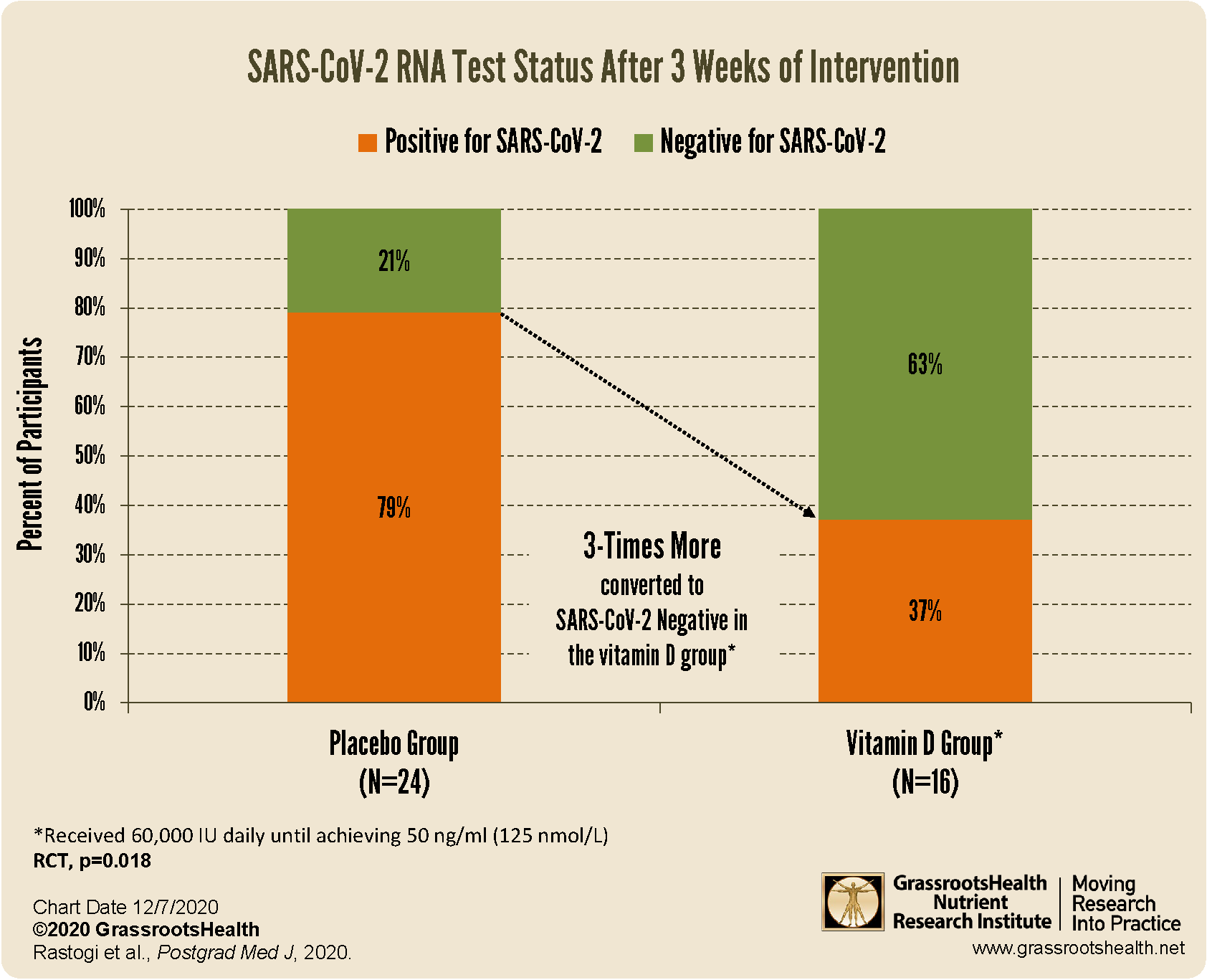 increased viral SARS-CoV-2 RNA clearance
increased viral SARS-CoV-2 RNA clearance
better clinical outcomes among patients with COVID-19
decreased risk of death due to COVID-19
Be sure to educate yourself on the benefits and importance of vitamin D for immune health, and take steps to ensure you and your loved ones are getting enough.
You can review all of the COVID-19 and immune health information we have shared on this page.


